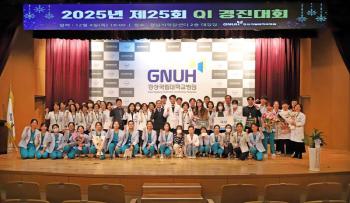Check pre-dementia brain activity changes...Can be precise in the early stages of memory loss
A research team led by Professor Park Jung-mi of Oriental Medicine at Gangdong Kyunghee University Oriental Hospital analyzed changes in brain activity of patients with mild cognitive impairment to identify clinical symptoms and indicators that can affect brain activity. The study was recently published in the SCIE-level journal Brain Imaging and Behavior' as an analysis of the relationship between brain activity and clinical indicators in memory-type mild cognitive impairment (Analysis of the relationship between brain activity and clinical indicators).
The study was conducted with 31 patients aged 55 years or older who had memory problems but were able to live their daily lives 'amnestic MCI'. Brain Functional Magnetic Resonance Imaging (fMRI) was measured while participants performed tasks to evaluate memory and attention, analyzed how different parts of the brain were activated when performing tasks, and compared the results with various clinical indicators to confirm their association.
As a result of the study, the older the age, the greater the brain activity of the hippocampus, which is responsible for memory. It is interpreted that this may be a compensatory action of the brain to compensate for cognitive decline caused by aging. In addition, the lower the depression, the statistically significant brain activity of the hippocampal gyrus and the hippocampal area, suggesting that emotional stability may be related to the activation of memory-related brain region functions.
In addition, a direct association between task performance ability and specific brain site activity was also identified. When performing the 'one-back' task, a task of remembering and comparing previous information for a short period of time, the higher the correct answer rate, the greater the activity of the precentral gyrus and precuneus sites. In addition, in the 'zero-back' task that requires simple attention, the higher the correct answer rate, the significantly higher the activity of the superior parietal lobule.
Differences in brain activity according to gender were also statistically significant in some areas (spondylus, hippocampus, anterior center, and next to hippocampus), and male participants showed higher activity than female participants. The research team interpreted that women may have utilized brain resources more efficiently, considering that there was no gender difference in task performance ability itself.
Professor Park Jung-mi identified the possibility of more precise identification of changes in brain function in the early stages of memory decline"In the future, it can be helpful in setting treatment directions or predicting prognosis in clinical practice and can be used as basic data for subsequent studies on patients with mild cognitive impairment." This study was conducted with the support of the Ministry of Health and Welfare's research project.
The study was conducted with 31 patients aged 55 years or older who had memory problems but were able to live their daily lives 'amnestic MCI'. Brain Functional Magnetic Resonance Imaging (fMRI) was measured while participants performed tasks to evaluate memory and attention, analyzed how different parts of the brain were activated when performing tasks, and compared the results with various clinical indicators to confirm their association.
As a result of the study, the older the age, the greater the brain activity of the hippocampus, which is responsible for memory. It is interpreted that this may be a compensatory action of the brain to compensate for cognitive decline caused by aging. In addition, the lower the depression, the statistically significant brain activity of the hippocampal gyrus and the hippocampal area, suggesting that emotional stability may be related to the activation of memory-related brain region functions.
In addition, a direct association between task performance ability and specific brain site activity was also identified. When performing the 'one-back' task, a task of remembering and comparing previous information for a short period of time, the higher the correct answer rate, the greater the activity of the precentral gyrus and precuneus sites. In addition, in the 'zero-back' task that requires simple attention, the higher the correct answer rate, the significantly higher the activity of the superior parietal lobule.
Differences in brain activity according to gender were also statistically significant in some areas (spondylus, hippocampus, anterior center, and next to hippocampus), and male participants showed higher activity than female participants. The research team interpreted that women may have utilized brain resources more efficiently, considering that there was no gender difference in task performance ability itself.
Professor Park Jung-mi identified the possibility of more precise identification of changes in brain function in the early stages of memory decline"In the future, it can be helpful in setting treatment directions or predicting prognosis in clinical practice and can be used as basic data for subsequent studies on patients with mild cognitive impairment." This study was conducted with the support of the Ministry of Health and Welfare's research project.
|
This article was translated by Naver AI translator.




